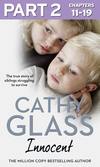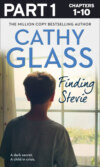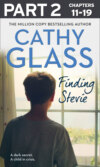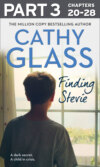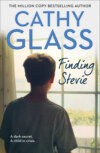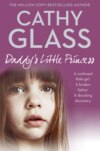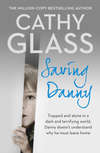Kitabı oku: «Cruel to Be Kind: Part 1 of 3: Saying no can save a child’s life»

Copyright
Certain details in this story, including names, places and dates, have been changed to protect the family’s privacy.

HarperElement
An imprint of HarperCollinsPublishers
1 London Bridge Street
London SE1 9GF
First published by HarperElement 2017
FIRST EDITION
© Cathy Glass 2017
Cover layout design © HarperCollinsPublishers Ltd 2017
Cover photograph © Iwona Podlasińska/Arcangel Images (boy, posed by a model)
A catalogue record of this book is available from the British Library
Cathy Glass asserts the moral right to be identified as the author of this work
All rights reserved under International and Pan-American Copyright Conventions. By payment of the required fees, you have been granted the nonexclusive, non-transferable right to access and read the text of this e-book on screen. No part of this text may be reproduced, transmitted, downloaded, decompiled, reverse engineered, or stored in or introduced into any information storage retrieval system, in any form or by any means, whether electronic or mechanical, now known or hereinafter invented, without the express written permission of HarperCollins e-books.
Find out about HarperCollins and the environment at
Source ISBN: 9780008252007
Ebook Edition © August 2017 ISBN: 9780008252045
Version: 2017-07-18
Contents
Cover
Title Page
Copyright
Acknowledgements
Prologue
Chapter One: A Bad Start
Chapter Two: Max
Chapter Three: Amazed
Chapter Four: A Healthy Appetite?
Chapter Five: Restless Night
Chapter Six: Hostile
Chapter Seven: Joining In
Chapter Eight: Tears
Moving Memoirs eNewsletter
About the Publisher
Acknowledgements
A big thank you to my family; my editors, Carolyn and Holly; my literary agent, Andrew; my UK publishers HarperCollins, and my overseas publishers who are now too numerous to list by name. Last, but definitely not least, a big thank you to my readers for your unfailing support and kind words. They are much appreciated.
Prologue
Since I began writing my fostering memoirs ten years ago, the number of children in care in the UK has risen to an all-time high of 70,000. Children come into care for many reasons, including physical, emotional and sexual abuse, neglect or a crisis in the family where there is no one to look after them. It is always very sad when a family is separated, and of course the child suffers. This is the story of one of those children: Max.
Chapter One
A Bad Start
‘His mother is in hospital having two toes amputated and there have been complications.’
‘Oh dear. I am sorry,’ I said.
‘Max is going to be very upset when I tell him he won’t be going home,’ Jo, Max’s social worker, continued. ‘It will be the first time he’s been in foster care, although his family are known to the social services. I’m anticipating collecting him at the end of school and then bringing him straight to you, so I’m afraid he’ll just have what he stands up in.’
‘Don’t worry, I’ve got plenty of spare clothes.’ I already knew that Max was six years old.
‘Good. Hopefully I’ll be able to get some of his belongings tomorrow. I’m going to see his mother, Caz, this evening after I’ve brought Max to you. She wants him to visit her in hospital.’
‘This evening?’ I asked, aware that it would be late and Max would already be very unsettled.
‘Yes.’
‘And you want him to go to school tomorrow?’ I needed to know so I could make arrangements to take him.
‘I don’t see why not. I’ll let you know the name and address of his school and the other information you’ll need when I see you later.’
‘OK. Thank you.’
We said goodbye.
It was now 2 p.m. and I went straight upstairs. I’d been fostering long enough to have accumulated spare clothes for emergency use for children of most ages. Sometimes I had plenty of notice when a child was being brought into care and could prepare for their needs, even meet the child if it was a planned move, but many children just arrived – as Max was going to – with very little notice.
I went first to the airing cupboard where I took out a fresh set of towels, and then continued into my bedroom and to the ottoman where I kept the spare clothes. Lifting the lid, I rummaged through until I found pyjamas, socks and pants for a six-year-old. I didn’t have any spare school uniforms so I’d have to wash and dry what Max was wearing. From a drawer in my room I also took out a child’s toothbrush and hairbrush. I put the towel and toothbrush in the bathroom, ready for later, and then carried the clothes into what would shortly be Max’s bedroom. I’d already thoroughly cleaned and vacuumed it and put on fresh bed linen after the last child had gone. Since Alex (whose story I tell in Nobody’s Son) had left two weeks previously, I’d looked after a child on respite for ten days who’d now returned to live with his carer.
Satisfied I was as prepared as I could be at such short notice, I returned downstairs to telephone Jill, my supervising social worker from Homefinders, the agency I fostered for. Jill’s role was to supervise, monitor and support me in fostering so that the child received the best possible care. She had telephoned me an hour before to say that Max was being brought into care and to ask if I could look after him. Although she’d asked me, it is generally assumed that a foster carer will accept the child referred to them. It’s not a pick-and-choose situation. The child coming into care needs a home, so unless there is a very good reason why a carer can’t take a particular child then they are expected to do so. From the little I knew, I was happy to accept Max and had no reservations. Jill had given me a brief outline of his home situation and why he was now coming into care. Although Max hadn’t been in care before, his family had come to the attention of the social services when some support had been put in, and now, while Max’s mother was in hospital, his three teenage sisters were supposed to be looking after him, but last night they’d gone out partying instead. A neighbour had alerted the social services when Max had knocked at her door asking for dinner and she’d taken him in. I also knew from Jill that Max was being brought into care under Section 20 (of the Children’s Act), also known as Accommodated. This is when parents ‘agree’ to place their child in care voluntarily, rather than going to court and risking a care order, which would mean they would lose their parental rights. Around 30 per cent of children who come into care are placed under Section 20. Jill had said she was hoping to be with me when Max arrived, and I now phoned her to let her know the time.
‘OK, see you later,’ she said.
I began a quick tidy-up of the living room and also took food from the freezer for dinner later. I knew from experience that when a child first arrived with their social worker there was a lot to get through, and also Jo was expecting me to take Max to visit his mother in hospital, so time would be short.
Adrian, my seven-year-old son, would be pleased to have another boy staying with us, I mused as I worked, although in truth he and my three-year-old daughter, Paula, usually got along with any child we looked after. They’d grown up with fostering, so having someone else living with us was the norm. Also the norm, although it saddens me to say so, was that I was now a single parent, as my husband, John, had left us eighteen months before. I’d taken a short break immediately after he’d gone and then a few months later, with the children’s agreement, I’d resumed fostering. I enjoyed fostering – caring for and helping the children while they were with me. It gave another dimension to my life and the small payment I received, together with the part-time work I did from home, paid the bills. At present Adrian was at school and Paula was playing at a friend’s house. I would collect her on the way to meet Adrian from school.
I’m always a bit anxious just before a new child arrives, wondering how they will settle and if they will like my family and me, but once they’re here I’m so busy that there isn’t time to worry. I just concentrate on looking after them and meeting their needs to the best of my ability. This afternoon, however, ten minutes before I was due to leave to collect Adrian and Paula, my anxiety level rose to a new height. The phone rang and I answered it in the hall, expecting Jill or Jo with some more news about Max or a last-minute change of plan, which happens a lot in fostering. However, a rather gruff woman’s voice I didn’t recognize demanded, ‘Is that Cathy Glass?’
‘Yes,’ I said tentatively. ‘Who’s calling?’
‘Max’s mum, Caz. I’m warning you, lay one finger on my boy and you’ll be sorry. Do you understand? I might be in hospital but his dad isn’t, and he don’t stand any nonsense.’
Ücretsiz ön izlemeyi tamamladınız.













